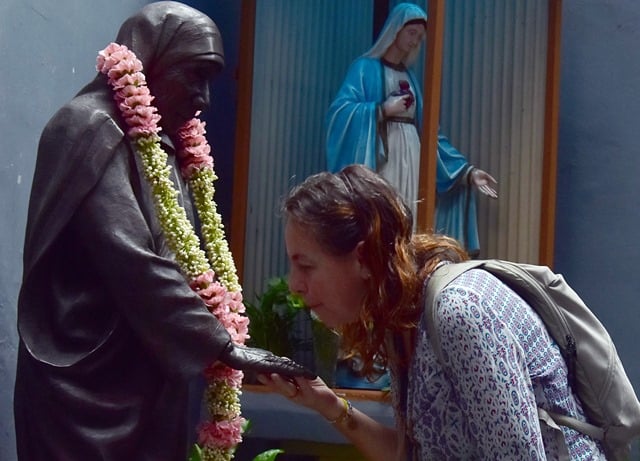
Month: September 2019

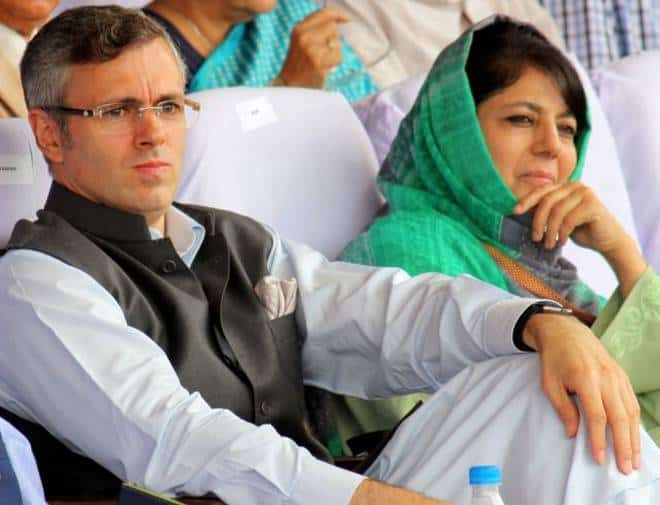
'J&K Netas To Be In Custody Till Normalcy'
“In case there were gatherings, terrorists would have used the situation. None of the Jammu and Kashmir political leaders has been charged with any criminal offence or sedition, they are in preventive custody till the environment is created for democracy to function, which I believe may happen soon”, he said in an interaction with journalists here.
NSA Doval also said that detention of political leaders in Jammu and Kashmir was in accordance with the law and the leaders can challenge their detention in court.
He said the situation was getting “much better” than what he had anticipated.
“I think the situation is getting much better than what I anticipated. Only one incident was reported on August 6 in which one young boy succumbed to his injuries. He did not die of bullet injury. The post-mortem report says he died because some hard object that hit him. In so many days, only one incident has been reported and it may be noted that we are talking about the terrorist-infested area”, Doval said.
The NSA also talked of Pakistan’s attempts to create disturbance in the Valley and stated that messages have been intercepted in which “Pakistan handlers” were criticising their men for failing to obstruct the movement of vehicles.
Doval also expressed his desire to see all restrictions lifted from the Valley.
“We would like to see all restrictions go, depending on how Pakistan behaves. It is a stimulant and response situation. If Pakistan starts behaving, terrorists won’t intimidate and infiltrate, if Pakistan stops sending signals through its towers to operatives, we can lift restrictions,” he told media persons.
The NSA said that as much as 92.5 per cent of the geographical area of Jammu and Kashmir was free of restrictions and the situation is getting better.
“92.5 per cent geographical area of Jammu and Kashmir is free of restrictions. We are determined to protect the life of citizens of Kashmir from Pakistan terrorists even if we have to impose restrictions for it. Terror is the only instrument that Pakistan has to create an adverse situation in the Valley”, he said. (ANI)
]]>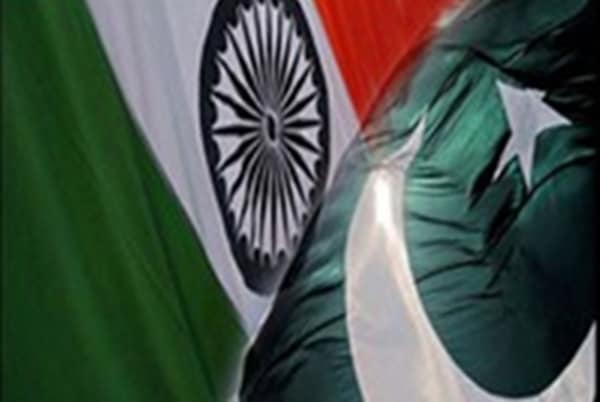
Pak Won't Let Kovind Use Its Airspace
Foreign Minister Shah Mehmood Qureshi said that the decision was approved by Prime Minister Imran Khan in response to India’s decision to revoke special status of Jammu and Kashmir, reported Dawn news.
Qureshi claimed that India had asked for air space clearance for Kovind’s September 9 flight. New Delhi is yet to make a comment on it.
Though Pakistan has been threatening to completely close its airspace for India since the latter announced its decision to abrogate Article 370, no official notification had come in this regard.
Following India’s historic decision, Islamabad has downgraded its diplomatic relations with India and partially closed its airspace.
However, Prime Minister Narendra Modi last month used the Pakistani airspace to travel to France for a bilateral meet.
Islamabad has shut its airspace earlier following the Indian Air Force (IAF) action on February 26. IAF planes had destroyed terror camps in Pakistan’s Balakot area, following the February 14 Pulwama terror attack which killed over 40 CRPF personnel in Jammu and Kashmir. On July 16, Pakistan had fully opened its airspace for all flights. (ANI)
]]>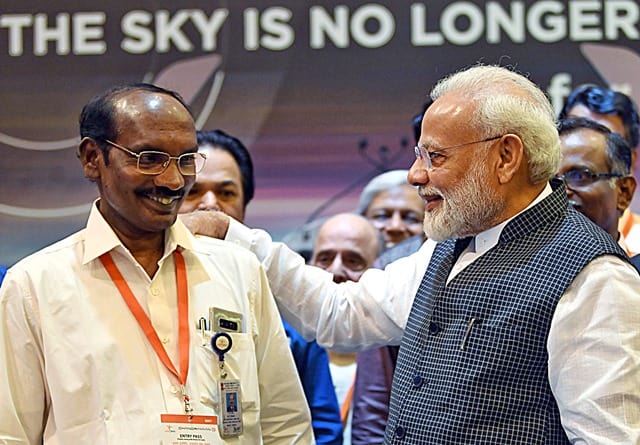
Communication Snaps With Chandrayaan 2
He said that communication with Vikram lander was lost at 2.1 km from Lunar surface.
“Vikram lander descend was normal and as planned till 2.1 km. Subsequently, communication with Vikram lander was lost. Data is being analyzed,” Indian Space Research Organisation (ISRO) Chairman K Sivan announced.
In its last tweet at 1:49 am, ISRO which was giving updates about the missions announced, “Rough breaking of #VikramLander ends and Fine braking phase starts. #Chandrayaan2 #ISRO.”
The Vikram Lander successfully separated from Chandrayaan-2 Orbiter on September 2. The Chandrayaan-2 Orbiter continues to orbit the Moon in its existing orbit.
The Vikram lander was planned to land on the far side of the moon between 1:30 am to 2:30 am on the intervening night of Friday-Saturday. This would have been followed by rover (Pragyan) roll-out between 5:30 am to 6:30 am.
After revolving around the Earth’s orbit for nearly 23 days, the craft began its journey to the moon on August 14.
The mission took off from the Satish Dhawan Space Centre in Sriharikota on July 22.
India’s second mission to the moon was approved by the cabinet in September 2008, just before the launch of Chandrayaan 1.
(ANI)
]]>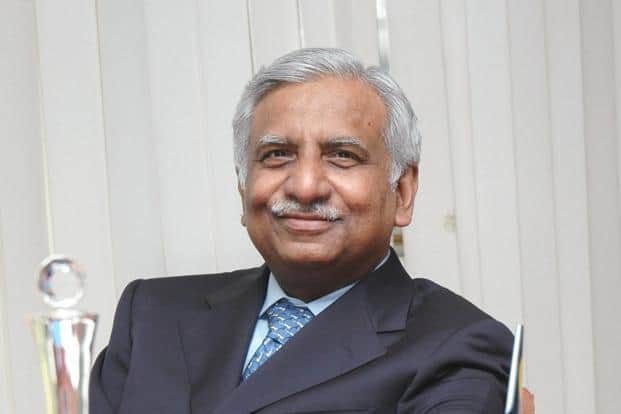
ED Grills Naresh Goyal Over Fema
The Enforcement Directorate (ED) on Friday questioned former Jet Airways chairman Naresh Goyal in connection with an alleged Foreign Exchange Management Act (FEMA) violation case.
The questioning comes after the agency conducted multi-city searches at various properties linked to Goyal and his close associates on August 23. The raids were conducted at twelve locations in Delhi and Mumbai.
Goyal had stepped down from the post of the chairman in March earlier this year, paving way for lenders to bail out the financially troubled airline he had set up 25 years ago.
Following this, the embattled airline halted its operations after running out of cash.
Jet was facing a financial crisis due to bruising competition from low-cost airlines, fluctuating crude prices and a weak rupee.
The airline has over one billion dollars in debt and has to repay money to banks, lessors of planes and suppliers besides clearing pending salaries of its pilots and other staff. (ANI)
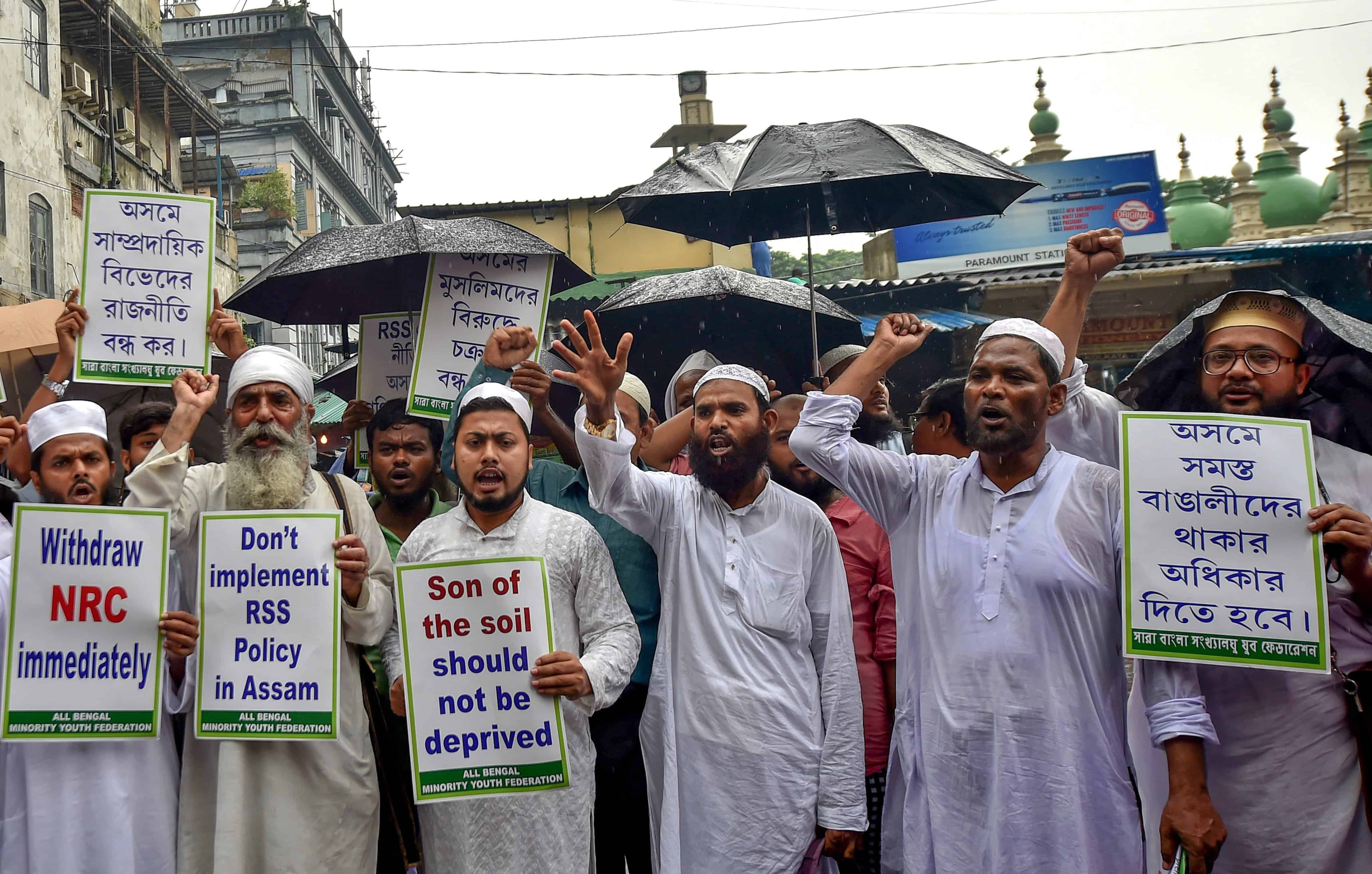
Bengal Parties Close Rank Over NRC
All India Forward Bloc MLA Ali Imram Ramz also raised his voice against the NRC and said passing a resolution against it “would show West Bengal as a secular state.”
However, Bharatiya Janata Party (BJP) called for implementing the NRC, saying it is imperative in order to weed out migrants from the state.
“NRC in Bengal is required as the Left Front government has allowed lakhs of Bangladeshi Muslims to enter Bengal,” said BJP MLA Swadhin Kumar Sarkar.
The NRC has been implemented in Assam. It is the list of Indian citizens in Assam being updated to throw out illegal immigrants from Bangladesh and neighbouring countries. It was first prepared in 1951 following the census of 1951.
But, now it is not linked to the census but one has to link oneself to a family member whose name had appeared either in NRC of 1952 or to any of of the states’ electoral rolls prepared till midnight of 24th March 1971. (ANI)
]]>Can India & Pakistan Settle Kashmir Through Talks?
Having failed to generate world attention on the Kashmir’s status, Pakistan may rely back on terror attacks. But such acts will now carry a high risk of Indian retaliation as happened in Balakot
I wrote this elsewhere on August 5, the day India ended special status of Jammu, Kashmir and Ladakh, and find that perception reinforced a month hence. The credit/blame for ratcheting up the Kashmir issue for South Asia and the world should go to United States President Donald Trump.
Things were not hunky-dory in the troubled state, now sliced into two union territories. But Trump set the timetable for Prime Minister Narendra Modi to implement his party’s long-held political agenda.
Modi felt cornered when Trump offered to mediate/adjudicate on Kashmir issue between India and Pakistan, claiming that Modi had asked for it, He said this before visiting Pakistan Prime Minister Imran Khan on July 22 in Washington.
Asking Trump to mediate goes against Modi’s grain. This is also not the position of his government and the party. Even in the past, India has always thwarted, except when expedient, any outside move to discuss Kashmir.
Trump possibly misread Modi’s mind. His announcement in Khan’s presence infuriated the Indians. Anxious to get Pakistan’s fullest cooperation in quitting Afghanistan, Trump may have thought he was giving Khan and his military mentors an additional reason to play the ball. This has boomeranged with consequences for Kashmir.
Look at the compulsions of all three players, Trump needs Khan to evacuate. Khan wants to make the best of this in money and military terms and firm up Pakistan’s position as the principal guarantor of everything happening to Afghanistan. Trump’s linking Kashmir was a bonus.
But having furthered Indo-US relations to where they are Modi has no real compulsion or incentive to seek Trump’s good offices on the Kashmir issue.
Now, having worked within its own territory, India doesn’t need any mediation.
India’s problem lies elsewhere. Special constitutional provisions, Articles 370 and 35A that have been abrogated were diluted, anyway, over the years and were largely symbolic. Annulling them has caused a huge set of issues – political, social, economic and psychological – for an entire state of 12.5 million people (2011 census figures) used to a way of life for seven decades.
Their lockdown is complete with communications snapped, movement restricted and despite official claims, a complete disruption of lives. Their future uncertain, mood is one of anger and disenchantment.
Like its geographical location, a Muslim majority state topped India’s image of a secular democracy. This erstwhile princely state’s accession was under unique circumstances and the provisions were definitely ‘temporary’. But undoing them has sent negative signals far and wide. History students ask if this belatedly justifies Hindus and Muslims being two separate ‘nations’, which led to the Partition.
Despite virtual separation of a Hindu-majority Jammu and a Buddhist-majority Ladakh, the challenge persists from a Muslim populace that forms a majority in the Kashmir Valley, with sections of it espousing separatism, some even preferring Pakistan.
Trying to solve this over a long period is Modi’s most formidable challenge. There is no denying it is a long haul and as of now, the conditions are grim.
Modi needs to reach out to the people, particularly in the Valley, sooner than later. All political players have been clubbed together. Indications are that curbs could ease on mainstream political parties with release of their chiefs from house-detention. But the government would be tough for separatists and worse for those looking for political and/or armed support from across the border.
Frankly speaking, there are no principles – it’s realpolitik at work.
If street protests ensue and India puts them down with a heavy hand – both are stark possibilities — one can expect denunciation of human rights violations. But in today’s world, human rights violations taking place daily in different parts of the world have, regrettably, lost their salience as instigators of international pressure.
As for Pakistan, raising the nuclear specter as it is wont to, Khan has warned of a third world war. Putting school children in front, he has unleashed a weekly national campaign where he attacks Modi, his faith and government as ‘fascist’, ‘Hindu supremacist’ etc. He seems unmindful of the risk he is putting the religious minorities in his own country, already discriminated socially and economically and frequently targeted by Islamist militants.
Khan tells the world community to intervene – or else. But things have changed since 9/11. With emergence of aggressive ‘nationalist’ leaders across the world, everyone has things to hide and people to get tough with.
Pakistan is unhappy that the world doesn’t listen to its angry laments. Except Turkey and its all-weather friend China that has its own compulsions with India, everyone wants the issue to be resolved bilaterally.
The Pakistan Senate passed a strong resolution. But it loudly wailed that the world is indifferent to the “Kashmir cause”. A restive opposition demands Khan to do more. Support came in the form of a resolution by the Organisation of Islamic Cooperation (OIC) asking India to roll back its action and follow the UN resolutions. But “the bubble of an Islamic ummah has burst,” said former Senate Chief Raza Rabbani. Dawn newspaper editorially noted that the OIC had been “a mere spectator.”
That Saudi Arabia’s Aramco signed a deal with India’s Reliance and the UAE conferred its highest civilian award on Modi last month, says Pakistan, demonstrates that economic gains with and from India have influenced prominent Muslim nations.
The Kashmir glue binds Pakistan. From Tehreek-e-Labaik to the liberal human rights bodies alike, all are united, although the latter have eschewed jingoism. Khan’s position is unenviable. Caught napping, the military has taken control of the discourse. Any criticism comes only from analysts safely ensconced in the West.
Since Kashmir issue was born with the Partition and has been linked to its very raison d’etre, Pakistan is unlikely to give up.
In India, criticism, if not outright opposition to Modi’s action, is strong, reflecting diversity. Pakistan and Kashmir do not rouse sentiments down south. It’s a relatively strong democracy, but the opposition is divided and on back-foot. Modi has made it a Kashmir-versus-the rest issue. Politically, this reinforces his party’s predominant position.
Serious differences are voiced on legal and constitutional aspects. India’s Supreme Court has shown no inclination to do anything immediate and/or drastic, giving the government time to restore normalcy, while constituting a 5-judge bench to hear the petitions.
Pakistan’s stakes are high, but it is working from a position of disadvantage. One, it cannot alter the new reality through pulic protests and diplomatic campaign. Two, India is, or ought to be, well prepared to meet the local situation, ruthlessly as and when required, and can take care of cross border moves.
It leaves scope for only terror attacks. But the surprise element of such attack(s) also carries high a risk of Indian retaliation as had happened at Balakot after Pulwama.
Talks on laying a corridor across Punjab border to Sikh shrine at Kartarpur and consular access to alleged Indian spy Kulbhushan Jadhav in Pakistani prison are two discernible signs of attempts at restoring a semblance of calm.
Given this situation, any substantive talks are far away. Everyone says: no war. Both sides are claiming the full territory. There is scope only for a negotiated settlement. Can that be based on on-ground realities? Will the neighbours agree to keep what they control? For now, this possibility is into an uncertain future.
The writer can be reached at mahendraved07@gmail.com
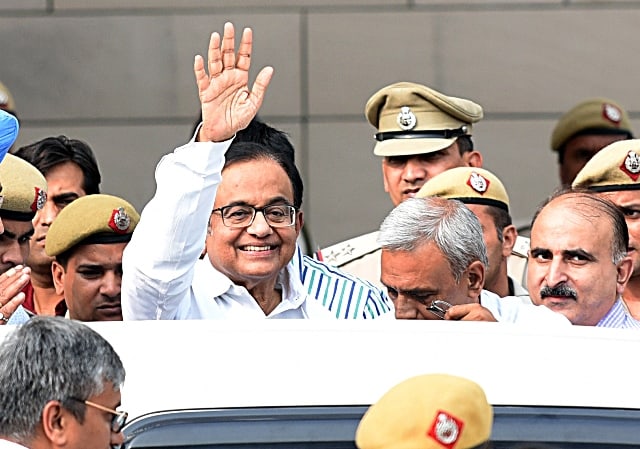
Chidambaram Sent To Tihar Jail Till Sept 19
In a double whammy, former finance minister P Chidambaram on Thursday was sent to judicial custody in Tihar jail till September 19 on a day when the Supreme Court also rejected his plea challenging the Delhi High Court order that had refused anticipatory bail to him in the INX Media case.
Giving its ruling on a CBI plea, the Special CBI court at Rouse Avenue allowed Chidambaram’s application to provide separate cell to him with adequate security.
The Congress leader filed the application before the court seeking direction to ensure safe detention while in judicial custody. He also provision of adequate security to him and detention in a separate cell.
Chidambaram’s lawyers have also moved an application in the court stating that the Congress leader wants to surrender in ED case.
Chidambaram was in custody of the CBI after he was arrested in a midnight drama on August 21.
Senior Advocate Kapil Sibal appearing for Chidambaram said that the Congress should not be sent to judicial custody and can be sent to the Enforcement Directorate (ED) custody.
“As far as CBI is concerned why should I (P Chidambaram) be sent to judicial custody? They’ve asked all questions. I’m willing to go to ED’s custody. I should not be sent to judicial custody,” he said.
Chidambaram was produced in Rouse Avenue Court after the apex court’ rejected his appeal against the Delhi High Court order rejecting his anticipatory plea in the INX Media case being probed by Enforcement Directorate (ED) saying that grant of anticipatory bail plea would definitely “hamper” effective investigation.
A bench of Justice R Banumathi and Justice AS Bopanna refused to extend protection from arrest by ED to Chidambaram and stated grant of anticipatory bail at the stage of investigation may frustrate the investigating agency in interrogating the accused and in collecting useful information and also the “materials” which might have been “concealed”.
“Success in such interrogation would elude if the accused knows that he is protected by the order of the court. Grant of anticipatory bail, particularly in economic offences, would definitely hamper the effective investigation. Having regard to the materials said to have been collected by the respondent-Enforcement Directorate and considering the stage of the investigation, we are of the view that it is not a fit case to grant anticipatory bail,” they said.
The apex court said that refusal to grant anticipatory bail would not amount to denial of the rights conferred upon the appellant under Article 21 of the Constitution of India.
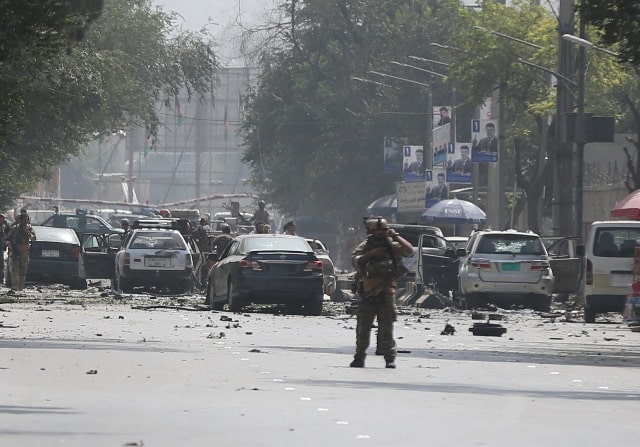
Blast Near Embassy District In Kabul
